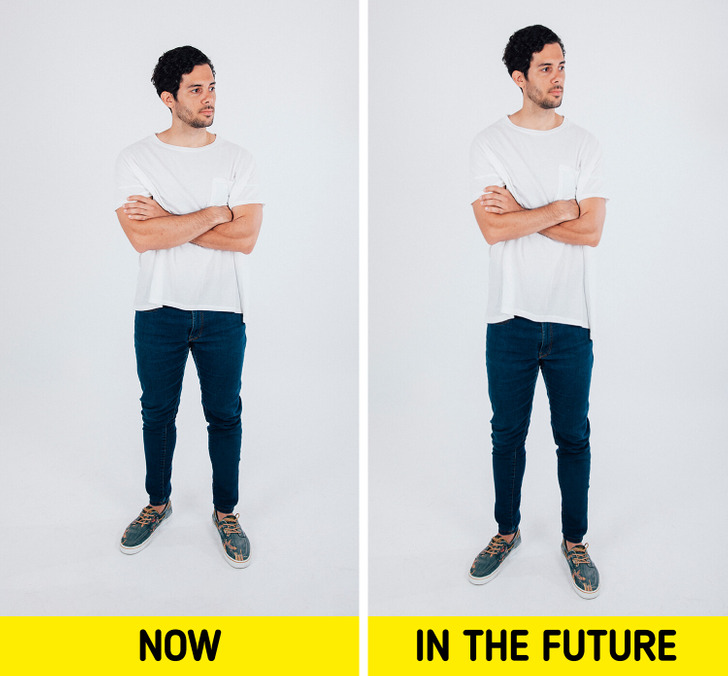Mom’s Huge Baby Bump Has People Guessing She’s Having Eight Babies


The future of humanity could take many paths. Researchers use digital tools to explore how technology might shape our evolution. One possibility is a water world scenario, where rising sea levels force our bodies to adapt to life in a changing environment.
We at Bright Side summed up several studies about human evolution, and we want to share some conclusions that were made by the researchers with you.
A high-tech future may bring some changes in human bodies, researchers guesstimate. Besides tech neck, people may end up with a second set of eyelids. They could help to filter out excess light from our technology devices.
The inner eyelid could get bigger to block incoming blue, green, yellow, or red light.
After long periods and years of holding smartphones, by the year 2100, a human may have hands that will be molded into a claw-like grip. It will be called a "text claw." Besides, the elbow will probably be bent at a 90-degree angle.
Climate change could lead to humans growing webbed feet and bigger toes. It could happen in the case of a “water world” if sea levels rise.

In the future, we may live longer, grow taller, and develop a leaner build. Our temperament could become more agreeable and less aggressive, but our brains might also shrink. In a way, we might resemble golden retrievers—friendly and cheerful, yet perhaps less complex.
We rounded up several theories and this is how people may look according to researchers. Of course, we don't know what the climate will be like even 100 years from now or if technology and the sea levels rising will be the main reasons for evolution, but at least now we can start doing everything to stop global ecological problems in the future.
Where do you think the evolution of the human body is headed? Do you believe in drastic climate changes?











